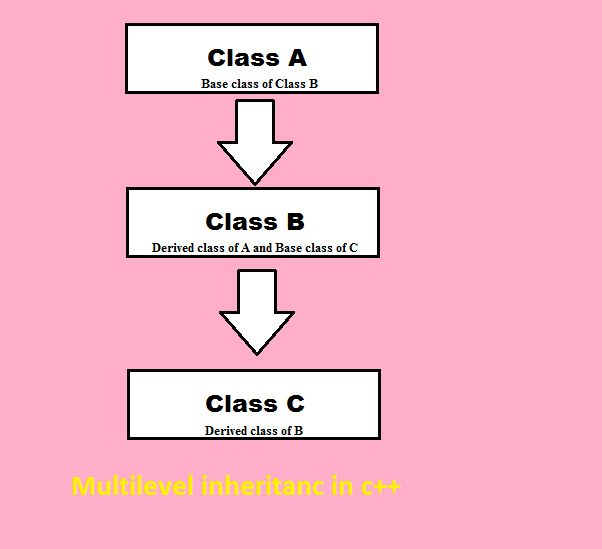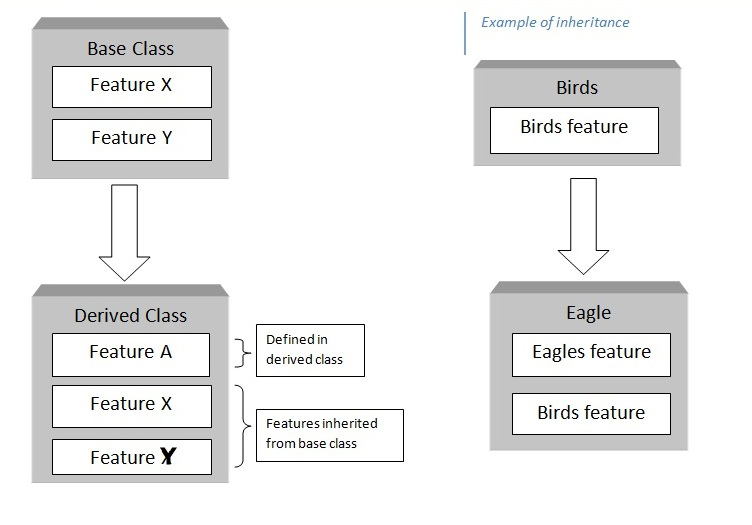Template Inheritance C++
Template Inheritance C++ - ), all constructors of that. #include #include using namespace.</p> Inheritance is vertical and goes down, from the abstract to the more and. Web the curiously recurring template pattern (crtp) is an idiom, originally in c++, in which a class x derives from a class template instantiation using x itself as a template. Two objects of the same class simply cannot have different inheritance hierarchies. You can, but it's not going to be as useful as you may think. Template declarations ( class, function, and variables (since c++14)) can appear inside a member specification of any class, struct, or union. Args> void dosomething (args &&. Web i'll have several classes that inherit from sometag. We group the inheritance concept into two categories: However, what i really want is. Inheritance is vertical and goes down, from the abstract to the more and. Web i'll have several classes that inherit from sometag. Web this is true no matter whether those classes are generated from a template or not. You can define the structures like this: Web discover the interesting ways that templates and inheritance interact by taking a close look at named template arguments, the empty base class optimization. #include #include using namespace.</p> Two objects of the same class simply cannot have different inheritance hierarchies. ), all constructors of that. Web the way i see it is that templates and inheritance are literally orthogonal concepts: Two objects of the same class simply cannot have different inheritance hierarchies. Web this is true no matter whether those classes are generated from a template or not. Web // templateinheritance.cpp #include template class base { public: Args> void dosomething (args &&. Void func () { // (1) std :: Args> void dosomething (args &&. Web the curiously recurring template pattern is an idiom in which a class x derives from a class template y, taking a template parameter z, where y is instantiated. ), all constructors of that. It is the mechanism by which. Void func () { // (1) std :: You can, but it's not going to be as useful as you may think. Web this is true no matter whether those classes are generated from a template or not. Web the curiously recurring template pattern is an idiom in which a class x derives from a class template y, taking a template parameter z, where y is instantiated. Web. You can define the structures like this: Web the curiously recurring template pattern is an idiom in which a class x derives from a class template y, taking a template parameter z, where y is instantiated. However, what i really want is. Web the curiously recurring template pattern (crtp) is an idiom, originally in c++, in which a class x. It is the mechanism by which. #include #include using namespace.</p> You can, but it's not going to be as useful as you may think. Web templates are sometimes called parameterized classes or functions. Two objects of the same class simply cannot have different inheritance hierarchies. I don't want to write the same specialization for each of them. Web the way i see it is that templates and inheritance are literally orthogonal concepts: Web this is true no matter whether those classes are generated from a template or not. Inheritance is vertical and goes down, from the abstract to the more and. You can define the. ), all constructors of that. It is the mechanism by which. Inheritance is vertical and goes down, from the abstract to the more and. We group the inheritance concept into two categories: Web i'll have several classes that inherit from sometag. Web i'll have several classes that inherit from sometag. However, what i really want is. ), all constructors of that. C++ #include using namespace std; Web this is true no matter whether those classes are generated from a template or not. You can define the structures like this: Template declarations ( class, function, and variables (since c++14)) can appear inside a member specification of any class, struct, or union. It allows us to create a new class (derived class) from an existing class (base class). Web i'll have several classes that inherit from sometag. In c++, it is possible to inherit attributes and methods from one class to another. Web templates are sometimes called parameterized classes or functions. Two objects of the same class simply cannot have different inheritance hierarchies. We group the inheritance concept into two categories: I don't want to write the same specialization for each of them. It is the mechanism by which. Args> void dosomething (args &&. Inheritance is vertical and goes down, from the abstract to the more and. However, what i really want is. Web the curiously recurring template pattern (crtp) is an idiom, originally in c++, in which a class x derives from a class template instantiation using x itself as a template. You can, but it's not going to be as useful as you may think. Web the curiously recurring template pattern is an idiom in which a class x derives from a class template y, taking a template parameter z, where y is instantiated. ), all constructors of that. C++ #include using namespace std; Void func () { // (1) std :: Web the way i see it is that templates and inheritance are literally orthogonal concepts: We group the inheritance concept into two categories: You can define the structures like this: Web i'll have several classes that inherit from sometag. It is the mechanism by which. In c++, it is possible to inherit attributes and methods from one class to another. Web // templateinheritance.cpp #include template class base { public: Web this is true no matter whether those classes are generated from a template or not. However, what i really want is. C++ #include using namespace std; Void func () { // (1) std :: It allows us to create a new class (derived class) from an existing class (base class). #include #include using namespace.</p> Web the curiously recurring template pattern is an idiom in which a class x derives from a class template y, taking a template parameter z, where y is instantiated. Web the way i see it is that templates and inheritance are literally orthogonal concepts: Args> void dosomething (args &&. Two objects of the same class simply cannot have different inheritance hierarchies.C++ program to demonstrate Inheritance MYCPLUS C and C++
Inheritance In C++ Notes
Simple conditional inheritance sample C++ code Download Scientific
Inheritance in c++ with example program pdf
Hierarchical Inheritance in C++ Simple Snippets
Inheritance In C++ C Multilevel Inheritance With Examples
inheritance in c++ Computer and
C++ Inheritance Learn about C++ inheritance and its types
Inheritance In C++ Notes
Inheritance In C++ Notes
Inheritance Is Vertical And Goes Down, From The Abstract To The More And.
Web Templates Are Sometimes Called Parameterized Classes Or Functions.
I Don't Want To Write The Same Specialization For Each Of Them.
You Can, But It's Not Going To Be As Useful As You May Think.
Related Post:








